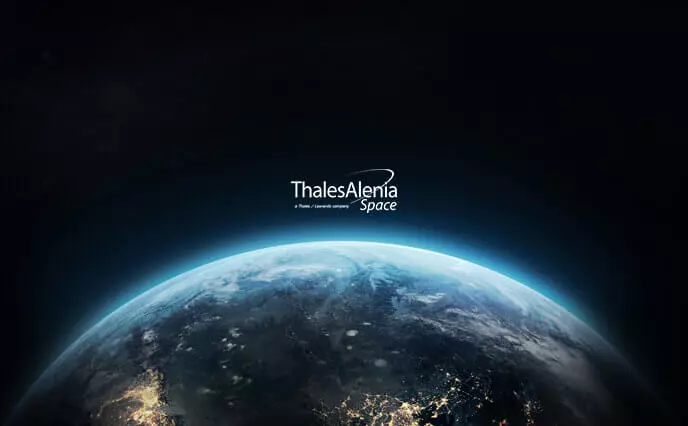Le projet GRICAS au cœur d’une démonstration pour la sécurité à bord des avions à Dakar

Le projet GRICAS au cœur d’une démonstration pour la sécurité à bord des avions à Dakar
Dakar, February 23, 2018 – Thales Alenia Space is at the heart of an in-flight demonstration of aviation safety, carried out today within the scope of the H2020 GRICAS project, conducted by Thales Alenia Space in partnership with French space agency CNES, as well as PILDO Labs, ASECNA and ECA. It is based on Thales Alenia Space’s MEOLUT Next solution.
The aim of this demonstration was to demonstrate how a second-generation SAR (Search & Rescue) beacon could independently detect an abnormal situation in flight, and be automatically activated.
The experiment in Dakar largely proved Europe’s technological maturity. MEOLUT Next is today the only MEOLUT in the world capable of processing second-generation beacons in real time. It offers in-flight independent position determination accuracy comparable to that of a GNSS receiver, despite the fact that it is independent and the platform is moving at high speed. This test also shows the high efficiency of the second-generation beacons developed through the GRICAS project, since it is still the only beacon of this generation proven in flight.
About GRICAS
GRICAS is a study initiated by the European GNSS Agency (GSA), within the scope of the Space section of the Horizon 2020 research & innovation program. A consortium, led by Thales Alenia Space, is developing innovative operational concepts to improve aeronautical SAR, by calling on the COSPAS-SARSAT* MEOSAR system. The consortium submits recommendations to EUROCAE, the European organization for aviation standards, especially through an international working group involving RTCA (the U.S. aviation standards organization) and COSPAS-SARSAT. The GRICAS project is being carried out within the scope of the development of an Autonomous Distress Tracking solution, as part of GADSS (Global Aeronautical Distress and Safety System), defined by ICAO (the international Civil Aviation Organization) The main objective is to develop and test the technology needed to support this regulation. The aim of the project is to develop the first second-generation beacon that can be activated automatically in flight, along with the corresponding processing algorithms in MEOLUT-NEXT to deal with these second-generation beacons with automatic activation capability and locate them when they are on the move on-board aircrafts.
About MEOLUT Next
MEOLUT Next is Thales Alenia Space’s latest contribution to satellite Search & Rescue (SAR) solutions, designed to save more lives as the first phased area antenna with beamforming technology dedicated to SAR applications and now fully integrated in the COSPAS-SARSAT system. With its small active antennas, MEOLUT Next is a fixed system, and does not require mechanical system to operate. It can track signals from all MEOSAR (Medium Earth Orbit SAR) satellites in its visibility zone, and detecting distress signals out to a range of 5,000 kilometers.
*COSPAS/SARSAT is an intergovernmental organization that provides a free global distress beacon warning and positioning service as part of global Search & Rescue systems, using the infrastructures from 43 countries and organizations worldwide. French space agency CNES is the official French representative for this organization. Today, some 2 million COSPAS/SARSAT distress beacons are used on ships, airplanes and as personal equipment during hazardous activities. More than 41,750 lives have been saved since the 1980s during some 11,700 SAR missions.
About Thales Alenia Space
Combining 40 years of experience and a unique diversity of expertise, talents and cultures, Thales Alenia Space engineers design and deliver high technology solutions for telecommunications, navigation, Earth observation, environmental management, exploration, science and orbital infrastructures. Governments, institutions and companies rely on Thales Alenia Space to design, operate and deliver satellite-based systems that help them position and connect anyone or anything, everywhere, help observe our planet, help optimize the use of our planet's – and our solar system’s – resources. Thales Alenia Space believes in space as humankind’s new horizon, which will enable to build a better, more sustainable life on Earth. A joint venture between Thales (67%) and Leonardo (33%), Thales Alenia Space also teams up with Telespazio to form the parent companies’ Space Alliance, which offers a complete range of services and solutions. Thales Alenia Space posted consolidated revenues of about 2.4 billion euros in 2016 and has 7,980 employees in nine countries. www.thalesaleniaspace.com
Thales Alenia Space – Press Contacts:
Sandrine Bielecki
Phone: +33 (0)4 92 92 70 94
sandrine.bielecki@thalesaleniaspace.com
Chrystelle Dugimont
Phone: +33 (0)4 92 92 74 06
chrystelle.dugimont@thalesaleniaspace.com
Cinzia Marcanio
Tel: +39 06 41512685
cinzia.marcanio@thalesaleniaspace.com
